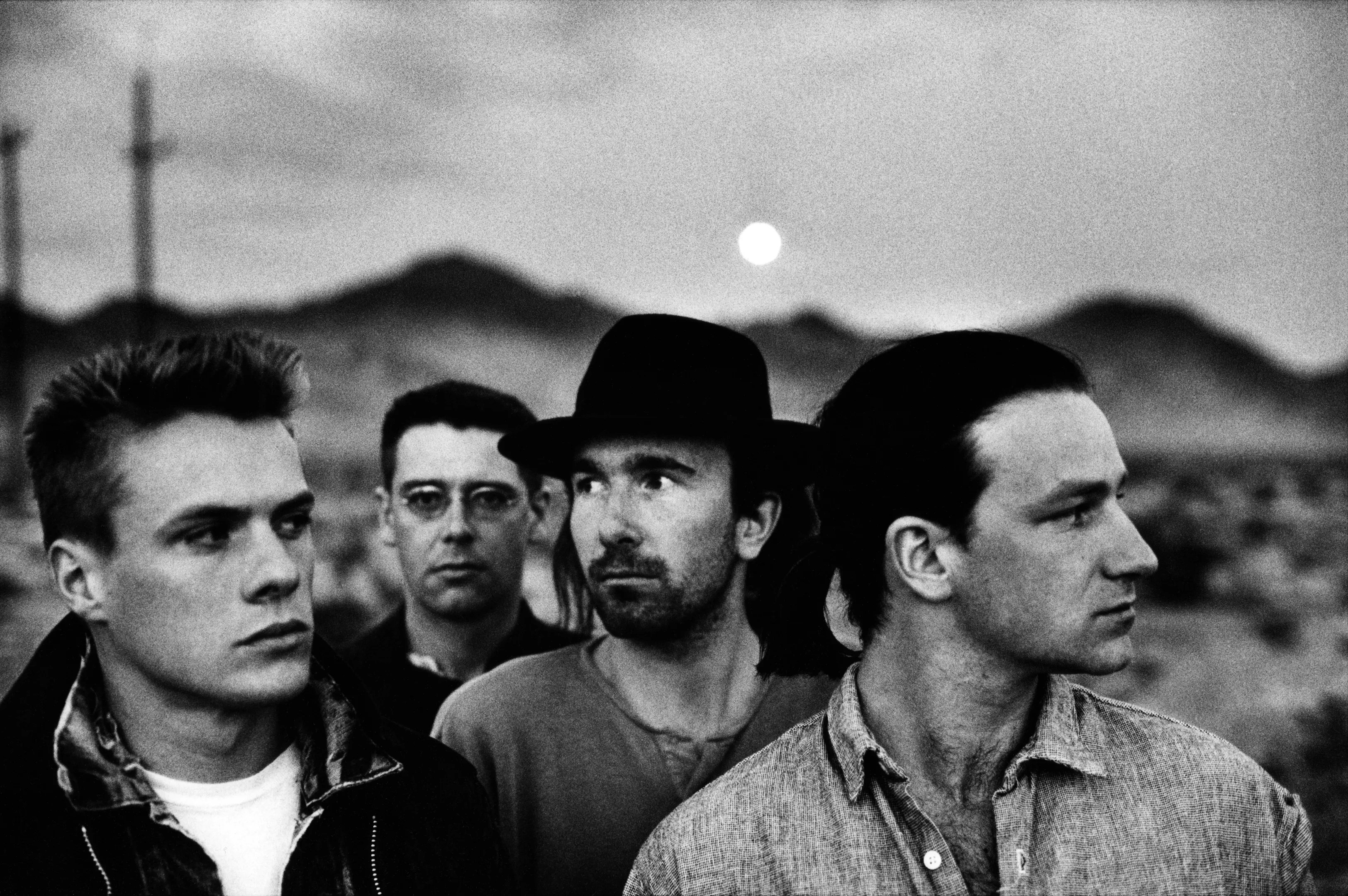
Anton Corbijn

Audio By Carbonatix
Bono’s voice was shredded, nearly gone. It’s hard to say whether the warm desert air hurt or helped on the night of April 2, 1987, as Dave “The Edge” Evans’ circular guitar riff hovered over Adam Clayton’s rolling bass and Larry Mullen Jr.’s drumbeat at the ASU Activity Center, now called Wells Fargo Arena. Reported causes of the vocal problems conflict. Some state the Irish singer was suffering from laryngitis. Others suggest the awfully poetic explanation that he tripped while carrying a spotlight and injured his throat.
Whatever it was, you hear it on the tape: The first sound Bono emits on mic lands somewhere between a croak and a groan. “We’ve missed you,” he blurts. “Tonight, we’re going where the streets have no name.”
And so The Joshua Tree tour began, with two packed shows in Tempe (the second followed on April 4). The Irish band’s fifth album was just over a month old and built on the airy foundation of 1984’s The Unforgettable Fire. That earlier record had loosened the band from their wiry framework with atmospheric vistas and an ode to Martin Luther King, whose name was in the Arizona air as The Joshua Tree hit record stores in 1987.
“Arizona had just elected a governor [Evan Mecham, who was] … at best incompetent and at worst a far-right racist lunatic,” recalls Phoenix-based singer/songwriter Cait Brennan. Mecham had canceled the state’s Martin Luther King Jr. Day as a paid holiday, and “every time he opened his mouth, another crazy, racist slogan fell out,” Brennan says.
Before the show, promoter Barry Fey read a prepared statement by U2 to the audience, denouncing the rescission of the holiday and announcing that the band had donated to an impeachment fund against Mecham, who’d be removed from office a little over a year later.
“The place went wild,” Brennan says. “My friends and I were young idealists and we felt so isolated and outnumbered here; it felt like we had allies for the first time.”
Originally titled The Two Americas, The Joshua Tree dove headfirst into the spiritual identity of the United States. The sound was expansive, layered, and sepia-toned, sonically informed by the vastness of the American Southwest.
“U2 had sort of adopted Arizona as its flagship state for the Joshua tour,” says Gin Blossoms drummer Scott Hessel, who attended the shows. “…It felt like the band would always hold a special place for the people of Arizona.”
For desert kids in Arizona, the album’s cover – shot in Joshua Tree, California, by Anton Corbijn – seemed intimately familiar.
“They were tapping into the desert mystique,” says Michael Krassner of avant-garde combo Boxhead Ensemble. Though the band didn’t inform his political identity as much as The Clash or Boomtown Rats, the music of The Joshua Tree “reinforced a lot of ideas about the world,” Krassner says.
Tempe marked the beginning of what was supposed to be the band’s triumphant tour. But Bono’s vocal issues – exacerbated by over-rehearsing – threatened to derail the band’s momentum. As the group tore into new material, it was apparent Bono didn’t have it in him to sing the soaring anthems.
“One by one, 14,000 people started singing along, full voice, as Bono gamely kept giving it what he had,” Brennan says. His voice improved as the show went on, but the crowd never stopped singing.
“It wasn’t some overblown rock show with pyrotechnics and the band coming down from the mountaintop with its awesome new jams, maaan,” Brennan says. “In that moment, we were all in it together.”
By the time U2 returned to Tempe to close out the tour on December 19 and 20 of 1987, they were the biggest band in the world. With cowboy hats, a load of self-seriousness, and a film crew in tow shooting the Rattle & Hum documentary, they’d upgraded to Sun Devil Stadium, with room for more than 70,000 fans. Tickets were cheap, only $5, and Bono’s voice was in fine form. But he still asked the audience to sing with him: “El pueblo vencerá.” They echoed the words back.
U2 is scheduled to perform Tuesday, September 19, at University of Phoenix Stadium. Tickets are $35 and up via Ticketmaster.